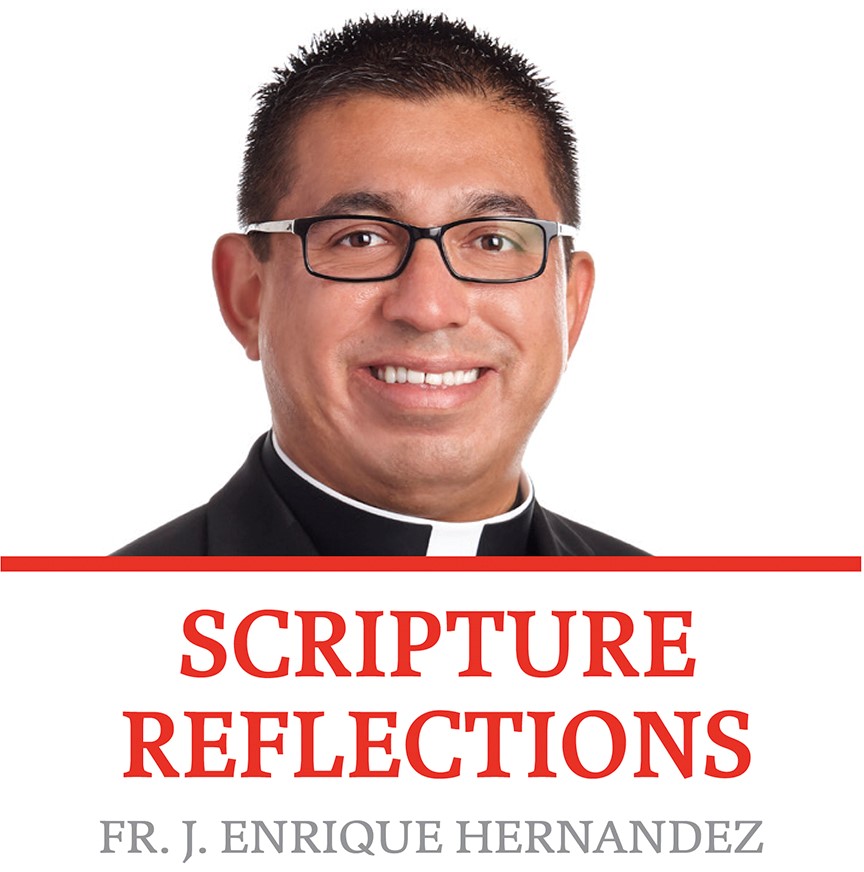Scripture Readings, Nov. 12, 2023
Sunday, Nov. 12, 2023
Thirty-Second Sunday in Ordinary Time
Wisdom 6:12-16
1Thessalonians 4:13-18
Matthew 25:1-13
On Nov. 2, we celebrated the Commemoration of All the Faithful Departed, also known as All Souls’ Day, sometimes called the Day of the Dead. On this day, and during the month of November, the Church prays in a unique way for the souls of the faithful departed. We pray for the holy souls in Purgatory who died in the mercy of God, thus they are called “holy.” However, because they still had an attachment to sin at the time of their death, they must undergo the spiritual purification of their souls before they are able to fully love God with their whole heart, mind and soul for all eternity. As they are nevertheless part of the Communion of Saints, they depend upon us to help ease their suffering and quickly advance them through their purification so they can join the saints in heaven. Those in Purgatory cannot pray for themselves; this is why they are also called “poor.” They can no longer merit anything for themselves, and rely entirely on us to pray and make sacrifices on their behalf. The Church has encouraged prayer for the dead from the earliest times as an act of Christian charity.
I am writing about this because in the second reading for the Thirty-second Sunday of Ordinary Time, Paul wrote to the Thessalonians, “We do not want you to be unaware, brothers and sisters, about those who have fallen asleep, so that you may not grieve like the rest, who have no hope. For if we believe that Jesus died and rose, so too will God, through Jesus, bring with him those who have fallen asleep.” We are people of hope in the Resurrection, and we pray for the poor souls in Purgatory that they may rejoice soon in the Kingdom of God.
It is widely believed the two letters to the Thessalonians were some of the first of Paul’s letters, written in an early period when Christians expected the Lord’s return at any moment. For this reason, Paul teaches them about the return of Christ, but urges them to be busy with good works as they wait. Here, we have one of St. Paul’s most explicit teachings about how the Second Coming of Christ will take place.
St. Paul uses the common early Christian euphemism of “sleep” to refer to those who have physically died. This usage comes from Jesus himself, who refers to the dead Lazarus, for example, as “fallen asleep.” (John 11:11) The point of this metaphor is to stress the temporary nature of death, that just as one wakes from sleep, so one will rise from the dead at the end of time. Some, though, have taken the metaphor too far, as implying that the dead in Christ are in an unconscious state until the return of the Lord. This idea, called the heresy of soul sleep, is contradicted by imagery in the book of Revelation that portrays the physically dead in Christ as conscious and active, as well as by the Church’s Tradition, which has always rejected the idea of unconsciousness during their time of death and the second coming of Christ. St. Paul teaches that, at the second coming of Christ in glory, those who have died will experience the resurrection of their bodies before those who are still living.
St. Paul commands us to “console one another with these words” about the second coming of Christ, and it strikes me that we do not always meditate on the return of Christ or derive much hope from it, though we should. We need to remember that even if we die in the end, victory is ours because Jesus already has conquered death by his Death and Resurrection.
I love our Catholic faith for many reasons. The Church throughout the year always remembers our faithful departed. At every Mass, we pray for all who have died. I think it is a beautiful expression of charity, which gives me much hope. Think about it: We are part of this wonderful Church that will never forget about us even after we die. Even after death, the Church continues to lift us up in prayer, continues to bless us and continues to offer sacrifices for those who died.
So, let us unite ourselves to the prayers and sacrifices of our Mother Church for our brothers and sisters in purgatory, who cannot do anything for themselves, but their deepest longing, their only desire is to be with God forever. Here is why the teaching of the Communion of Saints is so remarkably important: The saints in heaven pray for us, who are still on Earth, and we in return ought to pray for the souls in purgatory that one day by the grace of God, all of us be reunited in his Kingdom.

